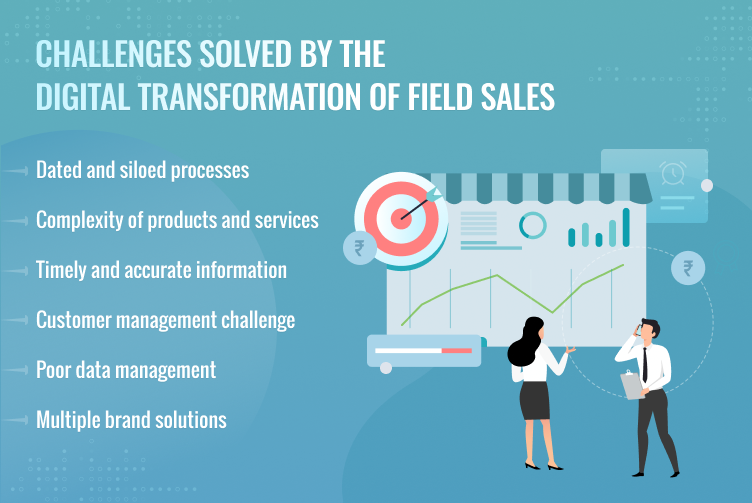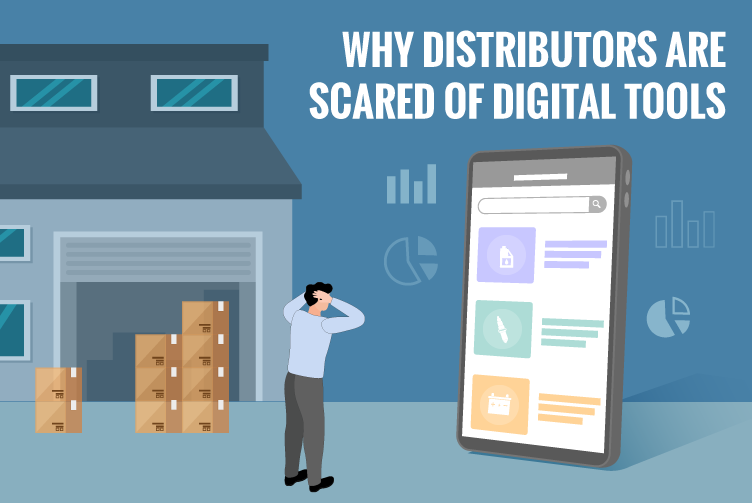The term ‘digital transformation has now become a part of everyone’s vocabulary. Digital transformation can simplistically be defined as adopting digital tools and technologies to change how people interact and do business. Organizations use these technology applications to change core business processes to create competitive differentiation while improving productivity and innovation.
Digital transformation over the years has led to a significant shift in the customer landscape as well. Customers have become accustomed to digital applications that deliver information and outcomes fast, intuitively, and in an engaging manner. This is now true across B2C as well as B2B sectors.
As customer expectations evolve, distributors have to ensure that they create the right processes that feed into delivering elevated customer outcomes. The importance of digitally transforming the distribution channel also becomes essential to stay ahead of the curve and capably leverage all available market opportunities.
Even distributors understand that the digital transformation of their processes can bring immense benefits. They see how this can help them consolidate several variables and navigate the complex business landscape with ease and capably drive customer experience.
Manage multiple product lines with clarity
Distributors usually have to manage large and multiple product portfolios. Each of these product lines has its own information sets, SKUs, and product specifications. Making sure that all these products are managed well and creating a product-specific distribution strategy to drive greater market penetration can prove to be immensely beneficial for distributors.
Streamlining operations to gain clear and data-backed insights into product penetration, usage, and demand patterns simplifies the distribution process and assist distributors to manage different product lines and product types with ease. These are critical qualities to develop in an extremely competitive and margin-pressured marketplace
Data-driven decision making
The days of decisions driven by the proverbial gut feel are now behind us. Distributors now need clear, up-to-date, and transparent data to make sure they remain on the path to profitability. In a global business environment and rising competitiveness, business leaders need to be sure of their decisions and strategies. As such, creating an interconnected network that connects all the parts of the distribution channel seamlessly to give a competitive and 360-degree view becomes imperative.
With large field operations and complex supply chains, data-backed insights become the key to driving better and more transparent management and addressing organizational needs proactively. The owners, managers, and stakeholders of the distributor company can also fine-tune sales and marketing strategies, build greater business resilience to navigate a market riddled with constant disruption and ensure more confidence in business planning and decisions.
Inventory and opportunity management
Given the vast and varied product portfolios, digital transformation of the inventory and opportunity management process is vital to add value to the bottom line. Robust inventory management solutions can provide the data that can help distributors understand product usage and usage patterns. They can then prepare themselves better to manage highs and troughs of the business world, reduce wastage in carried inventory and identify how to move slow-moving stock. With data-backed information, they can leverage economies of scale and make bulk purchases or pause buying according to predicted customer demands and existing inventory.
Access to data-backed insights from intelligent and comprehensive processes also helps in improving opportunity management. It enhances a businesses’ capacity to respond to market demands proactively, identify opportunities to enhance business outcomes by identifying cross-selling and upselling opportunities, and dynamically respond to market demands with agility by identifying trends and usage patterns proactively.
Improve sales and marketing outcomes
Given the scale of distributor operations and the increased competition in this space, having the right mechanisms in place to enhance marketing and sales outcomes is now essential. Becoming more agile and responsive to market demands needs data-backed insights. As such developing the capacity to connect all processes and data points to drive better customer outcomes becomes imperative.
Having the right data is almost akin to cheat codes in a video game. With that information, you can understand what unlocks the different levels and what you need to do to get there. The right data helps distributors identify what the customer values most and helps them develop a greater and more informed understanding of the audience.
Sales teams also benefit from this data and can then make more impactful and value-based sales propositions. Be it discount codes, money-back or upgrades, etc., the right data helps the sales team improve customer interactions and drive-up conversion rates.
Improve receivable conversion rates
With good data comes great clarity.
One of the biggest challenges for distributors is receivable or collection management. Distributors often operate with large credit margins owing to the volumes of operation. Revenues can often slip through the cracks and impact profit margins when not converted to cash in time. Collection management systems that provide granular clarity into receivables, gaps, and revenue leaks help distributors improve their revenue management capacities and cash conversion rates.
Field sales enablement
Field sales enablement also forms an essential part of the digital transformation of the distribution channel. Distributors can now leverage digital technologies to deliver enablement to their field agents when work happens and when they need information the most. Robust CRM systems and mobile enablement form key pillars for field sales enablement and ensure that the workforce can access accurate and timely information. With information at their fingertips, salespeople can improve conversion rates, identify, and drive opportunities, and improve customer experience by delivering elevated value.
The past two years have been a crash course on the importance of becoming agile and responsive to the volatile market. As disruptions become consistent and new ways of working emerge, digital transformation of the distribution channel becomes imperative to remain and advance competitiveness in an increasingly tight market. Talk to us to see a vision of a digitally transformed distributor operation to see the true extent of the possibilities.




